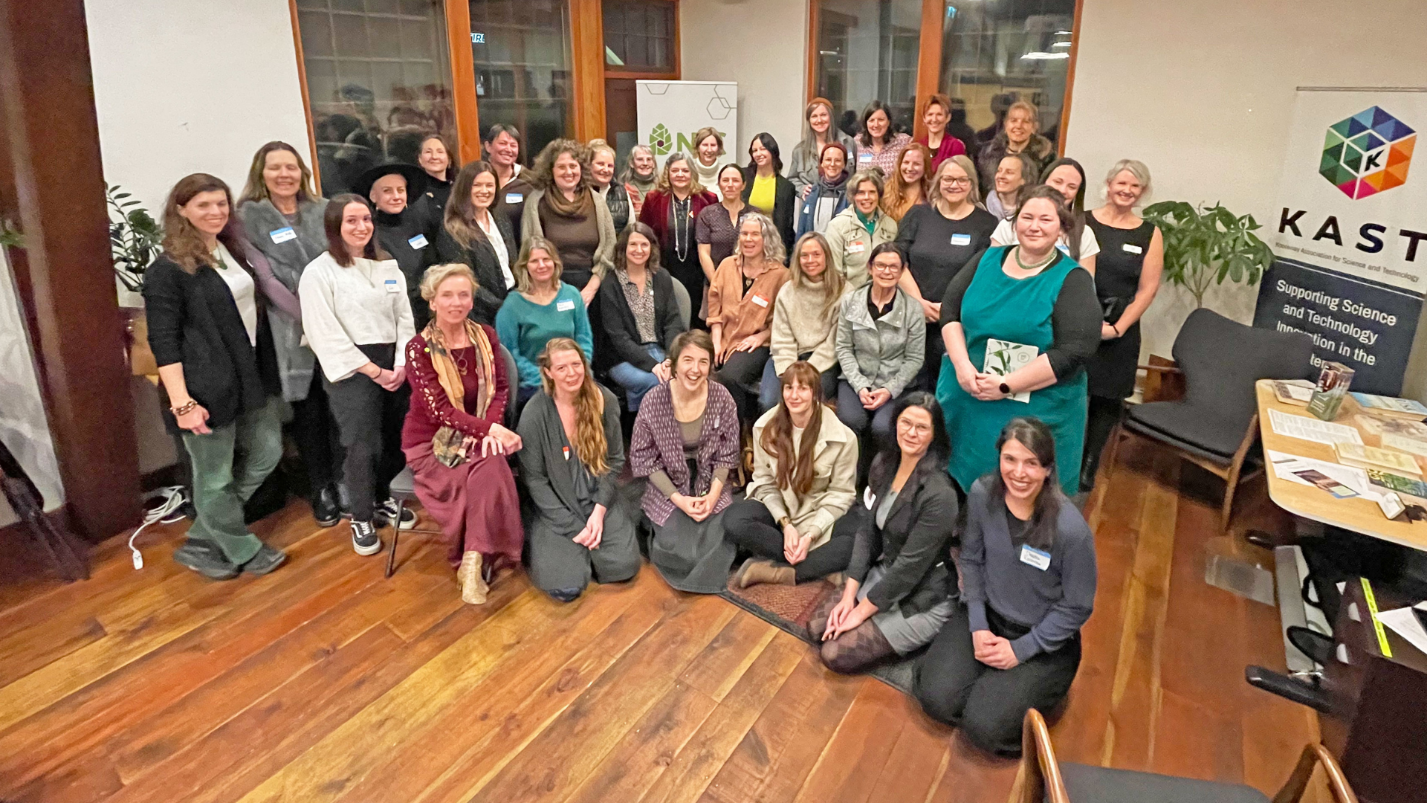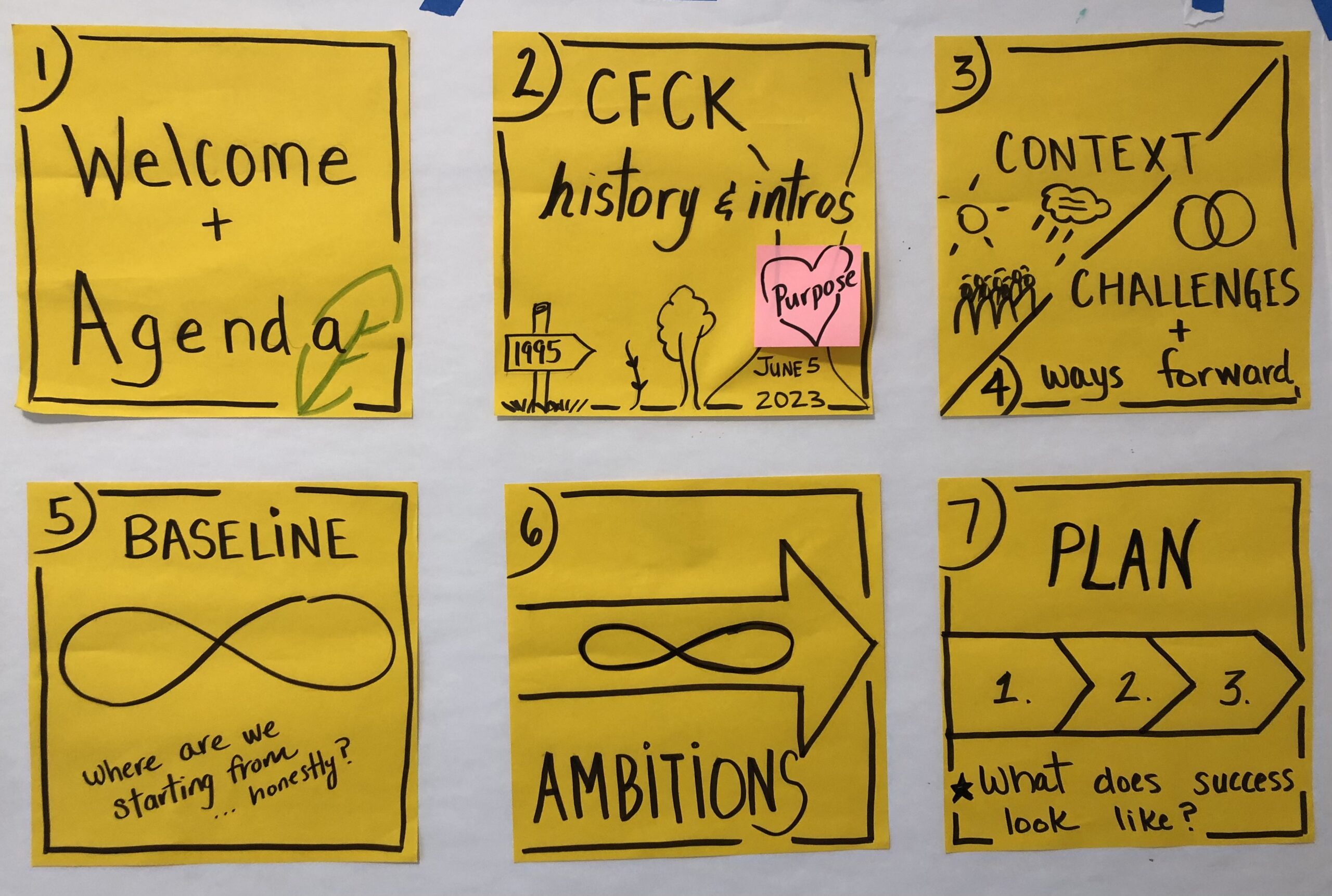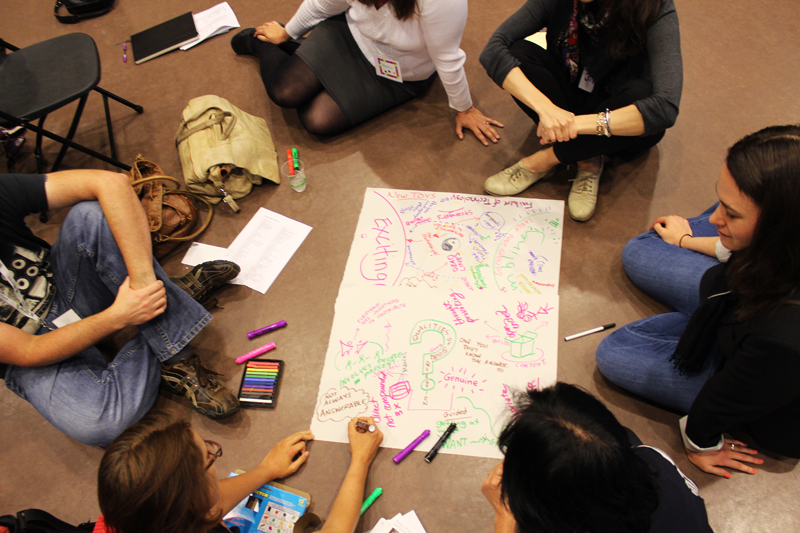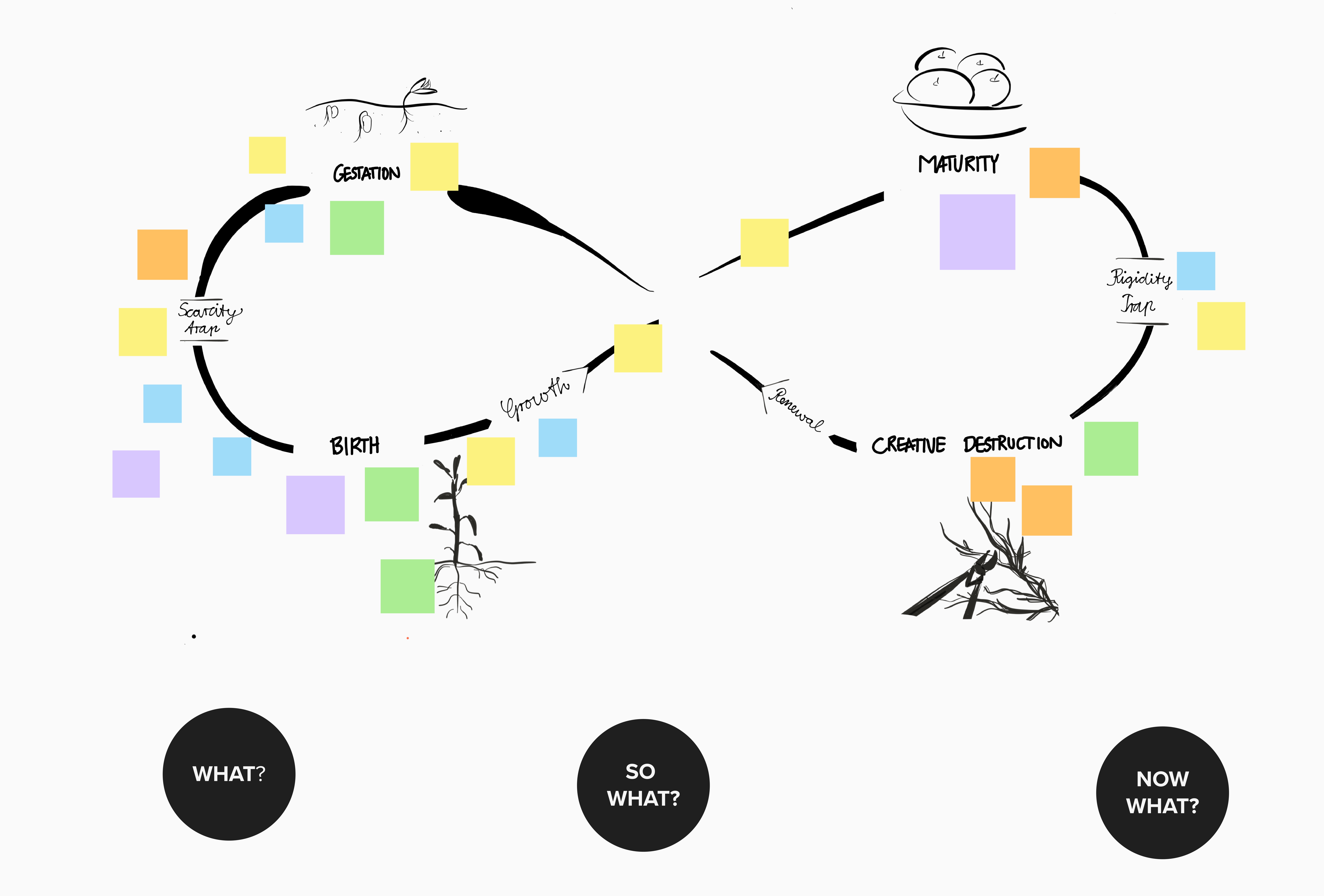See below for a second reflective guest blog from Lisa Theissen, social reporter at Rosviz18:
“I’ve been mulling over our time together, and thinking about my own Harvest from the point of view of Social Reporter. It’s always an interesting spot to hold, a little outside of things, recording everything I can, keeping track and choosing pieces to share with the online world about our work in the workshop.
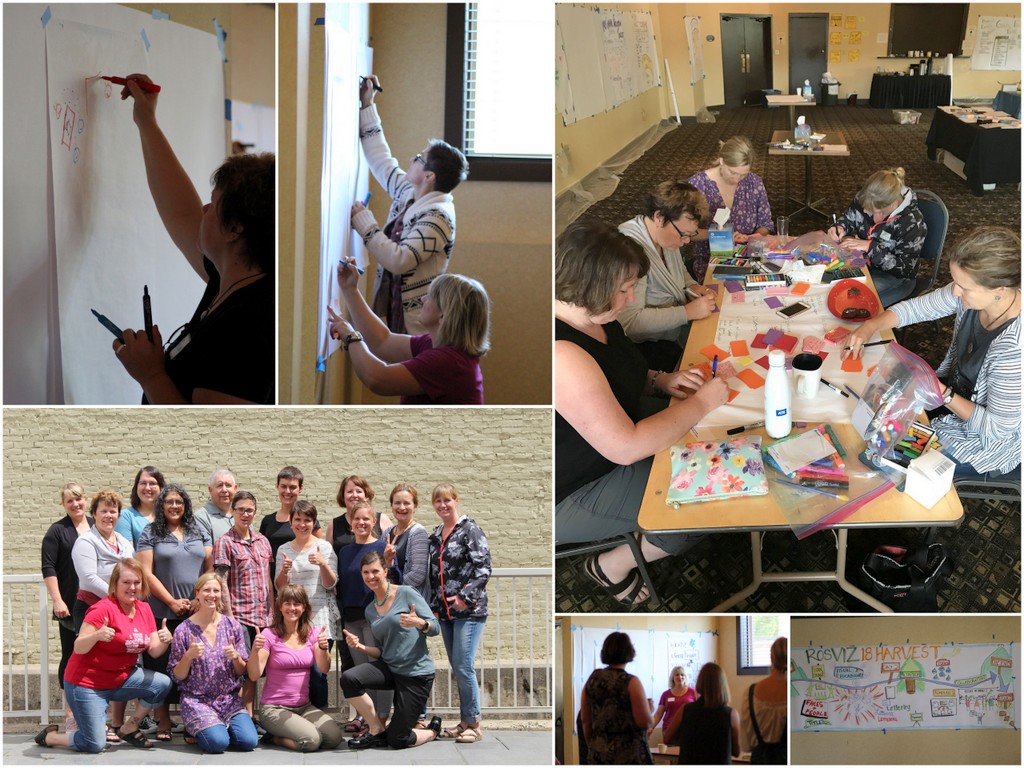
What amazes me each time we do this is how the people in the room shape the workshop. As organizer, Michelle knows the flow and shape of the exercises and of our days ahead of time. She is skillful in employing the wisdom in the room, the strengths of the attendees – which is different every time. Our Day Two was different than other Day Twos that I’ve seen at RosViz, and very rich! It was what was needed in the room, decided by the room.
This watching role allowed me the opportunity to hear both the rumblings of self doubt, self effacing comments as well as the emphatic “I CAN” moments that occurred. Beautiful, big AHA moments here and there, different for everyone.
My big AHAs this year were around how much more complex the work has become. People are taking graphic facilitation into rooms it may never have been in before, and learning new things about themselves and the groups they work with because of it.
Our group this year was looking to solve some very complex problems – to find more ways to engage their groups authentically, to facilitate respectfully, with curiosity and goals in mind.
One of the topics that came up around this was how the facilitation and recording of sensitive issues can have an emotional impact on the facilitator/recorder. I’ve had experience with recording in sensitive situations involving violence and abuse, and know this absolutely to be true. Some of those sessions are still here in my memory as though they happened earlier today. We talked a little bit in Rossland about being aware that we can become traumatized – and I would like to add another layer, one of being aware that, through our work, we don’t re-traumatize the individuals in the room. There are a few ways to approach this, the most effective I’ve found is to talk with the group ahead of time with some possible imagery/iconography pre-drawn to represent some of the big, difficult issues that can arise and ask for approval before they are used on the chart. My experience has been that people respond very genuinely to this, and are quick and clear with their answers. It is respectful, and saves the group (or individuals within it) from unwelcome shocks later. Graphics are powerful. We want to ensure that we wield them wisely.
Another ongoing theme that emerged was the use of technology in conjunction with graphic facilitation methods. One of the Harvest groups did a presentation about that very topic – and shared a rich conversation in the creation of the presentation. Serendipitously, on my arrival home I found a gift had come in the mail – that of a RocketBook – which had immediate and obvious application in terms of graphics and technology. It’s an analogue book that can be drawn/written in—and with an app and a bit of pre-linking, whatever has been put on the page can be uploaded as a .pdf, a .jpg or other file format to the virtual repository of your choice. I’ve been playing a bit with mine, and found it to be quite easy to use – I have been testing the RocketBook Everlast, which uses Frixion pens so that pages can be erased and used over and over again. It is, in effect, an infinite notebook, with each of the images stored on the web/in the cloud in a place of your choosing. Apparently it also has handwriting recognition, but I’ve not tested that feature yet. I think it’s going to become something I take with me as part of my toolkit in the future. (And I haven’t monetized the blog yet – looking at you, Jules)
It was really powerful to listen to each of the River of Life pieces as they were shared at the end. So many of the participants had already found clear direction for how they are going to be taking visuals forward into their facilitation practices and lives. I realized this year that everything that I’d written in my own 2011 River of Life had been accomplished – which motivated to hang some fresh paper on my own wall when I got home, look forward, and start drawing my future, once again.

